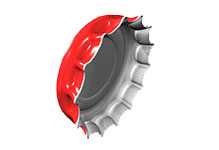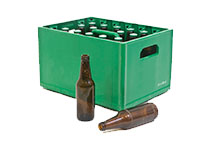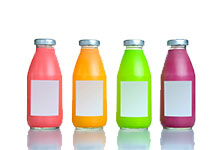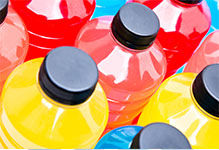Beverages
Water Most beverages contain water. Water restores fluids lost through metabolism, breathing, sweating and the removal of waste. Sweetened Sugar, high-fructose corn syrup or other high-calorie sweeteners enhance the sweetness of many beverages. Such beverages include carbonated and noncarbonated soft drinks, fruit drinks and lemonade. Many people drink coffee and tea with sugar. After water, tea and coffee are the two most commonly consumed beverages on the planet. Nutrients Beverages with nutrients include fruit juice, vegetable juice, whole milk, sports drinks, vitamin-enhanced waters and alcoholic beverages. One hundred percent fruit juice contains most of the nutrients of the fruit itself, but also delivers more energy. Vegetable juice can be a lower calorie alternative to fruit juice. Whole milk is a good source of calcium and vitamin D. Skim milk has half the calories of whole milk. Caffeine Caffeine appears in varying quantities in the beans, leaves and fruit of some plants. It acts as a natural pesticide that paralyzes and kills certain insects feeding on plants. Caffeine extracted from the cherries of the coffee plant and the leaves of the tea bush derived from the kola nut. Other caffeine sources include yerba mate, guarana berries and the Yaupon Holly.
Beverages



